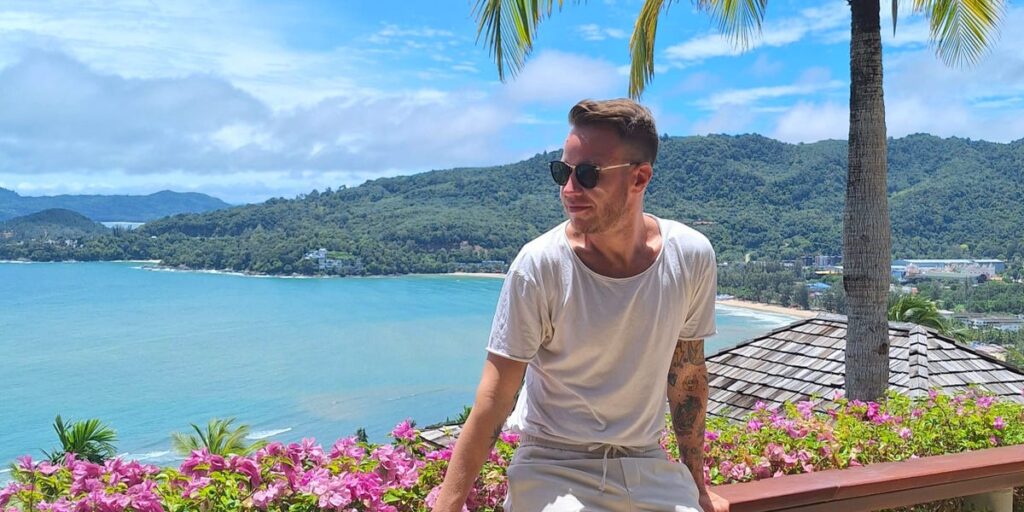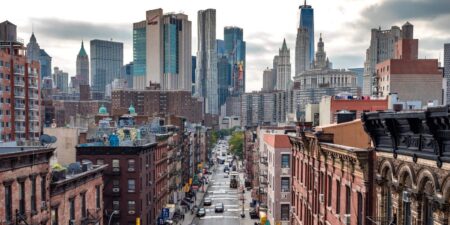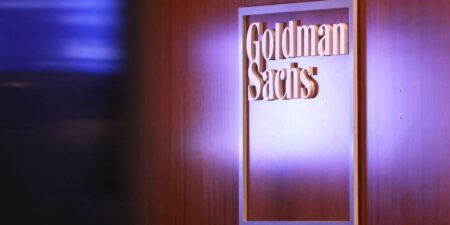Last year, I was running on empty. Decades spent as an editor in the relentless pace of London, Hong Kong, and Dubai had left me depleted. What some might call a midlife crisis, I saw as a necessary intervention — one that led me straight to Thailand.
I began my reset in bustling Bangkok, but it was the calmer southern shores of Phuket where I truly found my peace. My mission was to stop, reset, and rebuild on my own terms.
Naturally, the most pressing question loomed over me: What was the price tag on this kind of freedom? My research, a deep dive into online forums and even AI assistants, consistently delivered the same magic number, $1,500 a month to live comfortably in Thailand.
My biggest expense, rent, costs a fraction of what it once did.
My first concern was where to live. I discovered I could rent a studio for as low as $200 a month or splurge on a modern condo for about $1,000.
I chose a serviced apartment in a mid-range hotel in Kathu, a leafy suburban jungle area in Phuket that’s far from the tourist crowds of Patong.
As a long-term resident, I pay around 13,000 Thai baht, or $400, a month. This includes all utilities, cleaning, high-speed WiFi, and access to amenities like an infinity pool and gym. The rent fluctuates slightly between high and low seasons, but the average is roughly that amount.
The best part? I don’t have a long-term contract, just a flexible two-week notice period when I decide to move on.
Convenience stores are a budget-saver’s paradise.
No day in Thailand is complete without a trip to a 7-Eleven or Tops Daily. I’ve come to believe that everything you need to stay happy, healthy, and alive can be found in a Thai convenience store. It’s where I can fill my basket to the brim without worrying about the final cost.
Between fresh fruit, yogurt, probiotics, vitamins, soft drinks, water, and snacks, I spend about $10 a day. This is also where I top up my mobile plan. My pay-as-you-go package, free of any expensive, locked-in contracts, costs $10 a month for unlimited calls and high-speed data.
Getting around is cheap and easy.
Transport is one area where I’ve kept things simple. Instead of renting a motorbike for about $6 a day like many people do in Phuket, I rely on Grab, a local ride-hailing app. A quick ride to the beach on a GrabBike costs a dollar or two, and I book a car for longer trips.
Since I work remotely and can walk to most places, I only travel every other day, keeping my transport costs low while getting my steps in.
The food is a delicious bargain.
One of the biggest joys of living in Thailand has been discovering that I can eat exceptionally well without spending a fortune. For someone who can barely boil an egg, it’s been a life-changing convenience.
A plate of pad Thai from a street-side vendor costs around $2. I’ve since leveled up by ordering through a food delivery app, which often comes with free delivery and promotional discounts.
I get restaurant-quality meals like papaya salad and spicy basil pork delivered to my door for $3. I don’t think I’ve ever eaten so healthily or deliciously — budget aside.
All in, I spend roughly $250 a month on food, which covers everything from morning market fruit to my daily delivered dinners.
My personal well-being is affordable and accessible.
Staying fit and well-groomed in Phuket has also been easy and inexpensive. My local neighborhood gym is a multi-level space stocked with modern equipment and a schedule of classes.
I now have a regular schedule of Tabata and HIIT classes on Tuesdays and Thursdays, and weight training every other afternoon. While the standard monthly membership is about $50, I renewed during my birthday month in August and scored a six-month package for $115.
After a workout, I often reward myself with a $10 one-hour recovery massage. I also visit my favorite rock-and-roll styled barber twice a month, where a stylist gives me a cut for $9.
Even what I once considered luxury treatments are within reach. Korean Botox starts at around $125 for 50 units, proving that living on a budget doesn’t mean sacrificing your personal care — or vanity.
$1,500 is enough for a comfortable and exciting life.
Living in Phuket is genuinely affordable, especially if you embrace local living and avoid tourist traps. When I add up my core expenses like rent, daily convenience store runs, food, and transport, it totals about $1,000 a month. This leaves enough wiggle room for all kinds of extras, including weekend trips to nearby islands.
The budget not only covers a comfortable life in Thailand but also funds an exhilarating lifestyle in what I’ve deemed one of the world’s most dynamic and welcoming countries.
Do you have a story to share about living in Asia? Contact the editor at [email protected].
Read the full article here
















